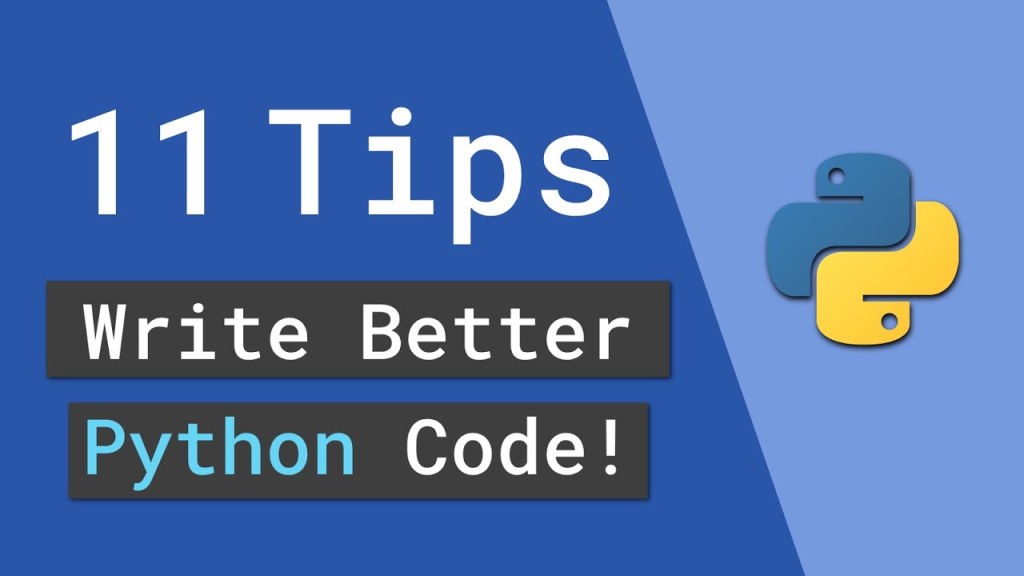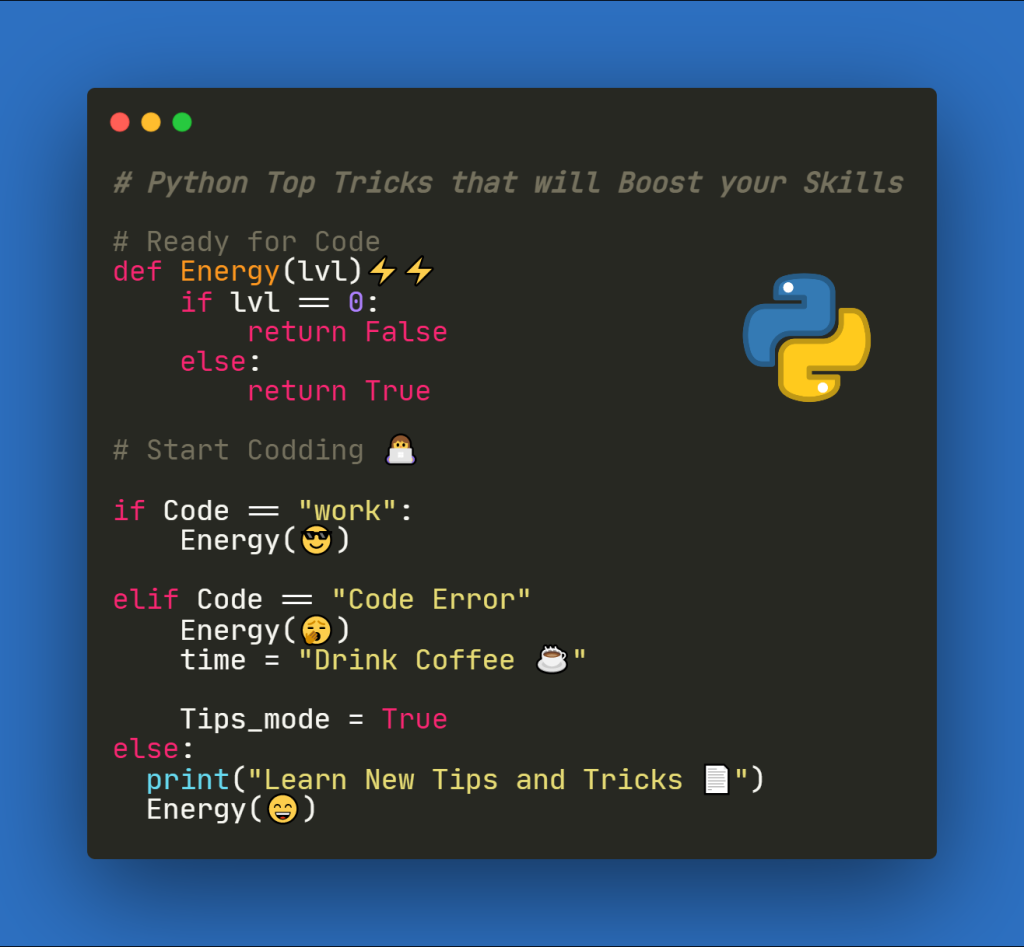Master Python Coding With These Powerful Tips: Boost Your Skills Now!
Coding Tips Python: Boost Your Skills and Efficiency
Greetings, Readers! In this article, we will delve into the world of Python programming and explore some valuable coding tips that will enhance your skills and efficiency. Whether you are a seasoned developer or a beginner, these tips will empower you to write cleaner, more organized, and efficient Python code. So, let’s jump right in!
Introduction
Python: A powerful and versatile programming language known for its simplicity and readability. It is widely used in various domains, including web development, data analysis, machine learning, and automation. As Python continues to gain popularity, it becomes essential to master the art of writing efficient Python code.
2 Picture Gallery: Master Python Coding With These Powerful Tips: Boost Your Skills Now!


In this article, we will discuss coding tips that will help you write better Python code. These tips range from simple strategies to advanced techniques that will boost your productivity and make your code more maintainable.
So, without further ado, let’s explore these Python coding tips:
1. Properly Document Your Code 📝
One of the essential aspects of writing clean and maintainable code is proper documentation. Use comments to explain the purpose of functions, classes, and complex algorithms. This practice not only helps others understand your code but also serves as a reminder for you in the future.

Image Source: ytimg.com
2. Follow the PEP 8 Style Guide 📄
PEP 8 is the official style guide for Python code. Adhering to this guide ensures consistency and readability across different Python projects. It covers topics such as code formatting, naming conventions, and code organization. Following the PEP 8 guidelines makes your code more professional and easier to understand.
3. Use Descriptive Variable and Function Names 📛
Choosing meaningful names for variables and functions is crucial for code readability. Avoid generic names like temp or value and opt for descriptive names that convey their purpose and usage. This simple practice will make your code self-explanatory and save time when revisiting it in the future.
4. Embrace List Comprehensions 📚

Image Source: medium.com
List comprehensions are elegant and concise ways to create lists in Python. They allow you to combine loops and conditional statements in a single line, resulting in cleaner and more efficient code. Mastering list comprehensions will significantly enhance your Python coding skills.
5. Use Built-in Functions and Libraries 📚
Python provides a rich set of built-in functions and libraries that can save you time and effort. Familiarize yourself with these functions and libraries, such as map(), filter(), datetime, and math. Utilizing them appropriately will streamline your code and make it more concise.
6. Implement Error Handling with Exceptions ❗
Python’s exception handling mechanism allows you to handle errors gracefully and prevent your program from crashing. Use try-except blocks to catch and handle specific exceptions. This practice ensures that your program can recover from errors and continue execution smoothly.
7. Optimize Your Code for Performance 🚀
As your Python projects grow larger and more complex, optimizing code performance becomes crucial. Techniques such as caching, memoization, and algorithmic improvements can significantly boost the speed and efficiency of your code. Keep an eye on performance bottlenecks and fine-tune your code accordingly.
Advantages and Disadvantages of Coding Tips Python
Now that we have explored some valuable coding tips for Python, let’s discuss the advantages and disadvantages they bring:
Advantages:
1. Improved code readability and maintainability.
2. Increased productivity and efficiency.
3. Enhanced collaboration with other developers.
4. Better error handling and debugging capabilities.
5. Optimized code performance for faster execution.
Disadvantages:
1. Learning curve for beginners unfamiliar with Python.
2. Increased complexity for certain coding techniques.
3. The possibility of introducing bugs when implementing advanced optimizations.
4. Potential conflicts with existing coding conventions in large projects.
5. The need for constant learning and staying updated with new techniques and best practices.
Frequently Asked Questions (FAQs)
1. Q: Is Python a good language for beginners?
A: Yes, Python’s simplicity and readability make it an excellent choice for beginners.
2. Q: Can I use Python for web development?
A: Absolutely! Python has powerful frameworks like Django and Flask for web development.
3. Q: Are coding tips Python applicable to other programming languages?
A: Some concepts, such as proper documentation and code readability, apply to all programming languages. However, specific tips may be Python-specific.
4. Q: How can I improve my Python coding skills?
A: Practice regularly, read Python books and tutorials, and contribute to open-source projects to enhance your skills.
5. Q: Are coding tips Python suitable for large-scale projects?
A: Yes, these coding tips are beneficial for projects of all sizes, including large-scale projects.
Conclusion
In conclusion, implementing these coding tips Python will undoubtedly take your Python skills and efficiency to new heights. By following best practices such as proper documentation, adhering to style guidelines, and leveraging Python’s built-in functions and libraries, you can write cleaner, more maintainable code. Remember to optimize for performance, handle errors effectively, and continuously improve your coding skills. Happy coding!
Final Remarks:
Throughout this article, we have explored valuable coding tips Python to enhance your skills and efficiency. It is essential to note that while these tips can greatly benefit your coding practices, always consider the specific requirements and constraints of your projects. Experiment, learn from your mistakes, and stay up-to-date with the latest developments in the Python community. Keep coding and never stop learning!
This post topic: Programming
